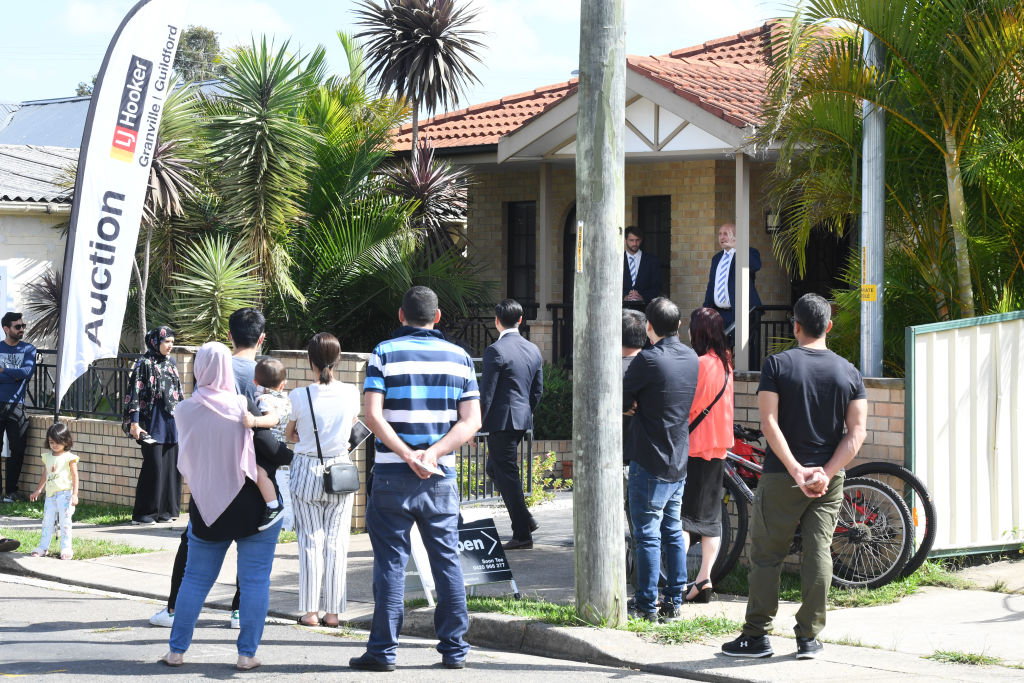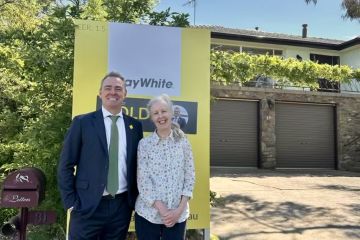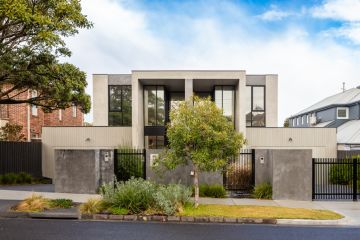Confidence in Australian property market suffers biggest monthly fall in 47 years: Westpac

Confidence in the Australian housing market has collapsed, with a Westpac consumer survey recording the single biggest monthly fall in its 47-year history.
The survey, which measures Australian consumer sentiment, saw house price expectations and “whether it is the time to buy property” plunge, as the effects of coronavirus hit hard and fast.
The “time to buy a dwelling” index dropped 26.6 per cent – the biggest monthly decline on record. But at 82, the index is still above the GFC low of 67.1.
Meanwhile, the “price expectations” index dropped by 50.8 per cent to 69.7 in April, a fall nearly four times bigger than the largest monthly decline since Westpac began including that question in 2009.
Westpac chief economist Bill Evans said the latest survey results confirmed that the effects of coronavirus had well and truly reached the Australian property market.
“It indicates that the confidence around the economy, spending and jobs is spilling over into housing,” Mr Evans said. “Confidence around purchasing has taken a [major] hit.
“I found that somewhat disturbing and surprising. It has heightened the negativity about the price outlook.”
He said the sheer drop in just one month was cause for concern.
“The GFC low took 18 months to get to, 18 months of constant deterioration. Whereas this happened in a month,” Mr Evans said. “That qualifies for the term of collapse most definitely.”
He said sentiment around “time to buy” tended to decline when prices rising. Not surprisingly, the time to buy index peaked around May last year when prices reached their bottom.
But with the dramatic downturn in the economy due to the shutdown of entire industries and subsequent mass job losses, Australians’ sentiment around the time to buy property and house price expectations had taken a steep fall.
“This one is out of the box. It’s probably indicating prices are too high in this current environment,” he said.
“You’ve got the double whammy … this time you’ve got both moving down, which is a general ‘get me out of here response’.”
He said while it was early days, it was a cause for concern.
“It is early days and it might be an early reaction, but it was a disturbing reaction. I wasn’t expecting a record fall in the 47 years in sentiment around buying a house at the moment.”
He said the collapse in sentiment and confidence in the property market had hit across the country.
“Sometimes these sorts of questions can be distorted by an atypical movement in one state. But this time … it was a nationally-based trend.”
Westpac forecasts a 10 per cent decline in property prices across Australia by year’s end, but this survey could support more pessimistic forecasts, Mr Evans says.
Overall consumer confidence had also taken a hard hit from COVID-19 with the monthly survey plunging the index by 17.7 per cent to 75.6 in April from 91.9 in March – a figure not seen since the 1980s recession.
A historic low of 64.6 was reached in November 1990, which again took one to two years of continuous deterioration, according to Mr Evans, compared to the one-month collapse in the April survey.
He said despite the collapse in confidence in the property market, many sellers would weather the storm if they were under no pressure to sell and the pool of buyers would simply shrink.
“In the big downturns, such as the early ’80s and ’90s, mortgage rates were double digits. It did flush out sellers. This time it is a lot less onerous to hold properties,” Mr Evans said.
Domain economist Trent Wiltshire said house price declines were almost certain now.
“House price expectations do indicate there will be a decline in prices … I guess the question is how far they will fall,” Mr Wiltshire said.
He said the government’s support packages, particularly the JobKeeper payment, and the banks allowing mortgage repayment freezes would limit forced selling.
“There will be a bigger decline in property sales than in prices, but both will fall,” he said.
He also noted that while many Australians no longer felt it was a good time to buy, the index was still higher than the GFC-low.
“A decent part of the population who have stable income might think it’s a good time to buy in three to six months’ time,” Mr Wiltshire said. “This shock is quite uneven. Not everyone is negatively affected.”
We recommend
States
Capital Cities
Capital Cities - Rentals
Popular Areas
Allhomes
More






